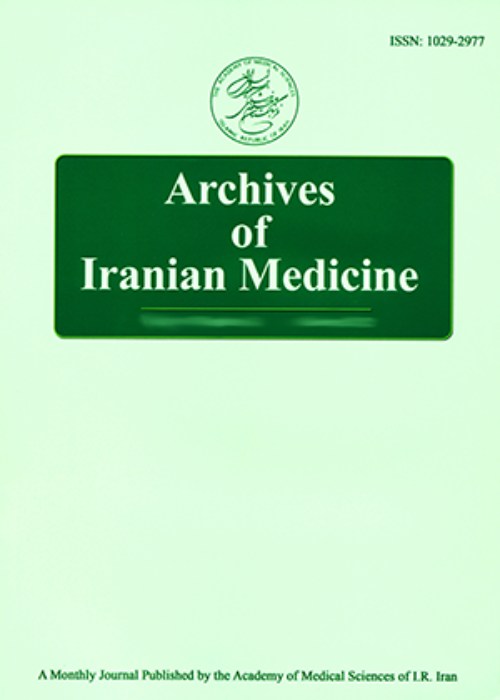Assessment of Beliefs about Cigarette Smoking in Middle School Students in Tehran: Implications for Intervention
Author(s):
Abstract:
Background and Objective – To assess knowledge, attitudes and behavior of middle school students (aged between 12 and 14 years) about the consequences of cigarette smoking (including social, psychological and health-related issues), the present cross-sectional study was conducted based on the concepts of the "social inoculation theory". This theory enabled the listing of appropriate and true beliefs and attitudes of students in regard to cigarette smoking. Furthermore, it identified differences between beliefs and attitudes of smokers and nonsmokers of both sexes in different age groups. This could be a strong tool to develop a health education curriculum for schools to prevent risk-taking behaviors, such as cigarette smoking, among school-aged children.Methods – A total of 5,934 boys and girls attending grades 6 to 8 were selected at random from 40 middle schools in the city of Tehran, using multistage cluster random sampling.Results – About 30.5% of male and 11.7% of female students had smoked at least one cigarette in their life. In general, 2.4% of students reported smoking daily (≥1 cigarette/day). The beliefs and attitudes of smokers towards negative consequences attributed to cigarette smoking were significantly different from those of non-smokers in the two sex groups. Both smokers and non-smokers were quite knowledgeable about the health and other consequences of cigarette smoking. However, in most cases, there was some uncertainty among students about the social, cultural, psychological and environmental factors influencing young people to start smoking. Furthermore, a sense of invulnerability to the health-related problems attributed to cigarette smoking was identified among smokers of both sexes.Conclusion – Male and female students who smoke cigarettes have quite different beliefs and attitudes toward cigarette smoking than those who do not smoke. Therefore, it is necessary to develop educational curricula for schools (based on the sex of students) to teach students about the negative (immediate and long-term) health and other consequences of smoking cigarettes. One of the main elements of such curricula should emphasize the ways to empower young students with the life skills necessary to overcome peer pressure that may encourage them to smoke cigarettes.
Language:
English
Published:
Archives of Iranian Medicine, Volume:6 Issue: 2, Apr 2003
Page:
95
magiran.com/p626480
دانلود و مطالعه متن این مقاله با یکی از روشهای زیر امکان پذیر است:
اشتراک شخصی
با عضویت و پرداخت آنلاین حق اشتراک یکساله به مبلغ 1,390,000ريال میتوانید 70 عنوان مطلب دانلود کنید!
اشتراک سازمانی
به کتابخانه دانشگاه یا محل کار خود پیشنهاد کنید تا اشتراک سازمانی این پایگاه را برای دسترسی نامحدود همه کاربران به متن مطالب تهیه نمایند!
توجه!
- حق عضویت دریافتی صرف حمایت از نشریات عضو و نگهداری، تکمیل و توسعه مگیران میشود.
- پرداخت حق اشتراک و دانلود مقالات اجازه بازنشر آن در سایر رسانههای چاپی و دیجیتال را به کاربر نمیدهد.
In order to view content subscription is required
Personal subscription
Subscribe magiran.com for 70 € euros via PayPal and download 70 articles during a year.
Organization subscription
Please contact us to subscribe your university or library for unlimited access!


